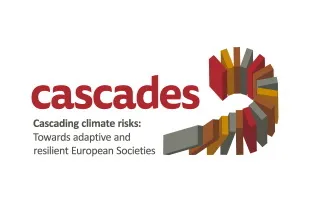CASCADES
CAScading Climate risks: towards ADaptive and resilient European Societies
CASCADES analyzes the impact of climate change on livelihoods, economies and political systems outside Europe, the implications of such impact for Europe and what European foreign policy could do to mitigate associated risks.

Climate change amplifies existing risks and vulnerabilities in a globalised world. New risks are also emerging from complex cross-sectoral and multi-dimensional interactions that aggregate gradually, and sometimes emerge abruptly. Recent examples of links between crop damage in Russia, international food prices and political instability in North Africa, as well as impact chains from drought, migration, civil unrest and war in the Middle East, demonstrate how climate-induced risks outside Europe can cascade and threaten Europe.
The main objective of CASCADES is, within four years, to analyse the trade, political and financial channels through which climate change impacts outside Europe might cascade into Europe, significantly altering Europe’s risk exposure, over the short, medium and long-term; and to support the design of a coherent European policy framework to address these risks.
CASCADES’ ambition is to identify the policy leverage points that can help the EU to adapt and respond to such cascading climate risks. CASCADES integrates a wide range of established and innovative methodologies – many of which have not been seriously applied to adaptation questions before – ranging from biophysical climate impact modelling, economic modelling of trade and financial networks, and data integration methods, to qualitative approaches including hotspot case study analysis original social science research and serious games.
CIDOB’s work within CASCADES focusses on conducting a case study on climate change, livelihoods, food security and fragility in the Western Sahel, particularly Niger and Mali. It will also contribute studies on the political economy and history of hydropolitics in the Euphrates-Tigris basin and on climate change policies in countries of the Western Sahel and the Middle East.
This project has received funding from the European Union’s Horizon 2020 research and innovation programme under grant agreement No 821010.
Coordinator:
Potsdam Institute for Climate Impact Research (PIK)
Partners:
- Stiftelsen the Stockholm Environment Institute (SEI)
- Adelphi Research Gemeinnützige GMBH (adelphi)
- Fondazione Centro Euro-Mediterraneo sui Cambiamenti Climatici (CMCC)
- Eidgenoessische Technische Hochschule Zürich (ETH)
- University of York (UY)
- Suomen Ympäristökeskus (SYKE)
- Barcelona Centre for International Affairs (CIDOB)
- The Royal Institute of International Affairs (CH)
- European Centre for Development Policy Management (ECDPM)
- Stowarzyszenie Centrum Rozwiazan Systemowych (CRS)
- Wirtschaftsuniversität Wien (WU)
Former researchers involved in the project:
Oriol Puig Cepero


